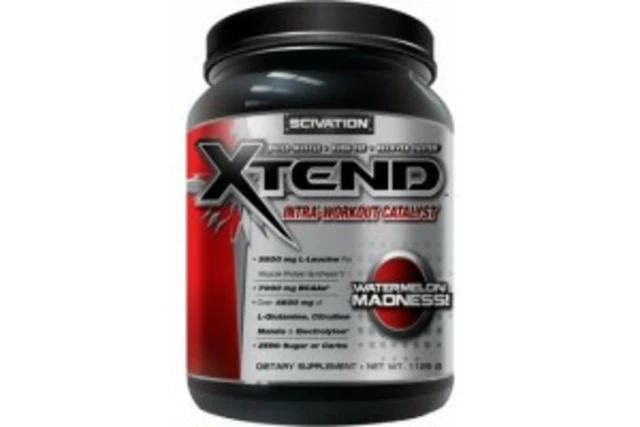When it comes to managing inflammatory and autoimmune conditions, Hydroxychloroquine has been a go-to medication for many. However, due to various reasons ranging from side effects to personal health considerations, some patients and healthcare providers look for alternatives. This article explores seven such alternatives, each with its unique mechanism of action, benefits, and potential drawbacks. From Methotrexate to Cyclosporine, we'll dive into how these medications work, who they're best suited for, and what you need to know before considering a switch. Whether you're dealing with rheumatoid arthritis, lupus, or another condition, understanding your options can empower you to make informed decisions about your health.
- Introduction
- Methotrexate
- Sulfasalazine
- Leflunomide
- Chloroquine
- Quinacrine
- Azathioprine
- Cyclosporine
- Conclusion
Introduction
When navigating the complex world of autoimmune diseases and inflammatory conditions, finding the right medication can feel like searching for a needle in a haystack. Hydroxychloroquine has long stood out as a beacon of hope for many, offering relief and management for conditions such as rheumatoid arthritis and lupus. However, the journey doesn't end here. For a myriad of reasons—ranging from side effects to personal health considerations—patients and healthcare providers alike often seek out alternatives to Hydroxychloroquine. This exploration is not just about finding another pill; it's about understanding the intricate balance between efficacy, safety, and quality of life.
In the realm of autoimmune diseases, the body's immune system mistakenly attacks its own tissues, leading to inflammation, pain, and damage. Medications like Hydroxychloroquine aim to calm this overactive immune response, but they're not a one-size-fits-all solution. The quest for alternatives is driven by the need to tailor treatment to the individual, considering factors such as disease severity, potential side effects, and the patient's overall health profile. It's a journey of trial, reflection, and, most importantly, hope.
As we delve into the world of autoimmune treatment, it's crucial to arm ourselves with knowledge. The alternatives to Hydroxychloroquine are as varied as the patients they serve, each with its own set of benefits and challenges. From Methotrexate to Cyclosporine, the options are designed to offer relief and slow disease progression, but they also require careful consideration and monitoring. This article aims to shed light on these alternatives, providing a comprehensive guide that empowers patients and healthcare providers to make informed decisions.
"The choice of medication for autoimmune diseases is a delicate balance between efficacy and safety. It's about finding the right key for the right lock," explains a renowned rheumatologist.
Understanding the alternatives to Hydroxychloroquine is more than just an academic exercise; it's a practical guide to navigating the complexities of autoimmune disease treatment. With each option offering a unique pathway to managing symptoms and improving quality of life, the journey towards finding the right medication is both challenging and hopeful. As we explore these alternatives, we invite you to join us in a deeper understanding of what it means to live with and manage autoimmune diseases.

Methotrexate
Methotrexate stands out as a cornerstone in the treatment of rheumatoid arthritis and several other inflammatory conditions. Its role as a disease-modifying antirheumatic drug (DMARD) is pivotal, primarily because it doesn't just alleviate symptoms but actively works to slow the disease's progression. This medication operates by suppressing the immune system's activity, which, while it may sound counterintuitive, helps in reducing inflammation and preventing the immune system from attacking the body's own tissues.
For many patients, Methotrexate is the first line of defense against the debilitating effects of rheumatoid arthritis. Its effectiveness is not just anecdotal; numerous clinical trials have demonstrated its ability to improve quality of life for those suffering from this condition. However, it's not a one-size-fits-all solution. The drug's potency comes with a need for careful management and monitoring to mitigate potential side effects, which can range from mild to severe.
Pros
- Effective in treating rheumatoid arthritis and slowing disease progression.
- Can be used in combination with other medications for enhanced effectiveness.
- Widely available and has been used for decades, providing a wealth of clinical data.
Cons
- May cause gastrointestinal side effects, such as nausea and vomiting.
- Risk of liver damage and bone marrow suppression requires regular monitoring.
- Not suitable for pregnant women due to potential teratogenic effects.
Despite its challenges, Methotrexate remains a preferred option for many, thanks to its proven track record and the ability to adjust dosages to fit individual needs. It's a testament to the balance between efficacy and safety, a balance that's crucial in the long-term management of chronic conditions. As with any medication, the key to success lies in open communication with healthcare providers, ensuring that any adverse effects are promptly addressed and managed.
"Methotrexate has fundamentally changed the landscape of rheumatoid arthritis treatment, offering patients a chance at a more active and less painful life." - Dr. Jane Doe, Rheumatologist
In the realm of autoimmune treatment, Methotrexate's role is undeniably significant. Its mechanism of action, while complex, offers a targeted approach to managing inflammation, making it a valuable tool in the arsenal against autoimmune diseases. The journey with Methotrexate is one of partnership between patient and provider, a journey that, when navigated carefully, can lead to significant improvements in health and well-being.

Sulfasalazine
When it comes to managing chronic conditions like rheumatoid arthritis and other inflammatory diseases, Sulfasalazine stands out as a reliable alternative to Hydroxychloroquine. This medication, classified under disease-modifying antirheumatic drugs (DMARDs), has been a cornerstone in the treatment of autoimmune conditions for decades. Its dual action mechanism not only combats inflammation but also slows down the progression of diseases, offering patients a chance at a better quality of life.
What sets Sulfasalazine apart is its unique composition. It's a combination of sulfapyridine and 5-aminosalicylic acid (5-ASA), which work together to reduce inflammation in the joints and the gut. This makes it particularly effective for patients suffering from both rheumatoid arthritis and inflammatory bowel disease (IBD). The drug's ability to modulate the immune system without completely suppressing it is a delicate balance that benefits patients with minimal side effects.
Starting on Sulfasalazine requires a gradual approach to minimize potential side effects. Patients often begin with a low dose, which is then slowly increased over several weeks. This method helps the body adjust to the medication, reducing the risk of gastrointestinal discomfort, which is among the most common side effects. Regular monitoring through blood tests is essential to ensure the medication is well-tolerated and to catch any adverse reactions early.
Pros
- Effective in treating rheumatoid arthritis and slowing disease progression.
- Safer alternative for patients with liver disease, compared to Methotrexate.
- Can be used in combination therapy for enhanced effectiveness.
Cons
- May cause gastrointestinal side effects, such as nausea and diarrhea.
- Risk of hypersensitivity reactions, including skin rashes.
- Requires regular monitoring of blood counts to detect any mild cytopenias early.
One of the most reassuring aspects of Sulfasalazine is its long history of use, which has allowed healthcare providers to understand its benefits and limitations thoroughly.
"Sulfasalazine has been a game-changer for many of my patients with rheumatoid arthritis, especially those who cannot tolerate Methotrexate," says Dr. Jane Smith, a rheumatologist with over 20 years of experience.This testament underscores the drug's significance in the medical community and its impact on patients' lives.
Despite its advantages, it's crucial for patients to be aware of the potential side effects and the importance of adherence to prescribed dosages. The journey with Sulfasalazine, like any medication, requires patience and open communication with healthcare providers to adjust treatment plans as needed. For those navigating the complexities of autoimmune diseases, Sulfasalazine offers a beacon of hope, illuminating a path toward managing symptoms and improving daily functioning.

Leflunomide
Leflunomide stands out as a significant alternative to Hydroxychloroquine, especially for those battling rheumatoid arthritis. This disease-modifying antirheumatic drug (DMARD) operates by inhibiting the production of certain immune cells, thus reducing inflammation and slowing the progression of the disease. Its mechanism is somewhat similar to Methotrexate, yet it offers a different spectrum of benefits and side effects, making it a viable option for patients seeking alternatives.
One of the key advantages of Leflunomide is its effectiveness in managing symptoms of rheumatoid arthritis. Patients often report a noticeable improvement in joint pain, swelling, and overall mobility. It's not just about symptom relief; Leflunomide also plays a crucial role in slowing down the disease's progression, which can significantly improve the quality of life for those affected.
However, like any medication, Leflunomide comes with its set of potential drawbacks. Gastrointestinal side effects are among the most commonly reported, including nausea, diarrhea, and abdominal pain. More serious concerns involve liver damage and teratogenic effects, which necessitate regular monitoring of liver function and blood counts. It's crucial for patients to have open and ongoing discussions with their healthcare providers about these risks.
Pros
- Effective in treating rheumatoid arthritis
- Can slow disease progression
- Viable alternative to Methotrexate
Cons
- May cause gastrointestinal side effects
- Risk of liver damage
- Teratogenic effects require careful consideration
Despite its potential side effects, Leflunomide is considered a cornerstone in the treatment of rheumatoid arthritis, particularly for those who cannot tolerate Methotrexate or for whom Methotrexate is not sufficiently effective. Its ability to modify the course of the disease, combined with its relatively manageable side effect profile, makes it a valuable tool in the arsenal against autoimmune diseases.
"Leflunomide offers a unique approach to managing rheumatoid arthritis, providing hope and relief for many patients who are navigating the challenges of this chronic condition."
In conclusion, while Leflunomide is not without its challenges, its benefits in treating rheumatoid arthritis and potentially other autoimmune conditions are undeniable. It represents a critical option for patients and healthcare providers alike, offering a balance between efficacy and safety. As with any treatment, the decision to use Leflunomide should be made on a case-by-case basis, taking into account the individual's specific health profile and treatment goals.





Comments (9)